Iran-Linked Terror Suspect Charged With Unlawful Escape
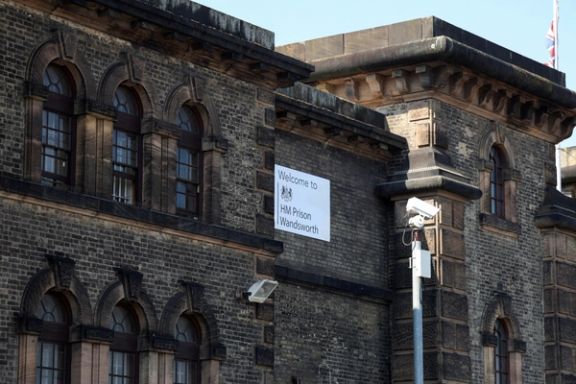
British police have charged an ex-soldier with alleged ties to Iran with unlawfully escaping from custody following a four-day manhunt in West London.

British police have charged an ex-soldier with alleged ties to Iran with unlawfully escaping from custody following a four-day manhunt in West London.
Daniel Khalife, a 21-year-old former soldier accused of passing information to the Islamic Republic, had absconded from Wandsworth prison on Monday morning by strapping himself to the underside of a food delivery truck.
He was recaptured in west London on Saturday while cycling alongside a canal.
"A man who was arrested after escaping from HMP Wandsworth has been charged," the Metropolitan Police said. "Daniel Abed Khalife, 21, will appear in custody at Westminster Magistrates’ Court on Monday, 11 September."
Khalife, who was discharged from the British army in May, was charged with escaping "contrary to common law" while being remanded in custody. He had been held pending trial on offences relating to terrorism and the Official Secrets Act.
He is accused of eliciting or trying to elicit information likely to be useful to a person preparing an act of terrorism while he was based at barracks in central England in 2021, and staging a bomb hoax by placing three canisters with wires on a desk.
He had also been charged with obtaining information which might be "directly or indirectly useful to an enemy". The BBC has reported he was accused of gathering intelligence for Iran.
Daniel Abed Khalife embarked on his military career in 2019, stationed at MoD Stafford, also known as Beacon Barracks, prior to his disappearance on January 2. The incident was linked to an alleged bomb hoax. Subsequent court proceedings at Westminster Magistrates' Court unveiled allegations of Khalife planting mock explosive devices with the intent of inducing fear.
(With reporting by Reuters)

The family of a Swedish EU employee detained in Iran has urged the international community to help secure his release.
"The family, friends, and supporters of Johan are calling for urgent international attention to secure his immediate release and safe return to Europe," Johan Floderus' family wrote on a website dedicated to his release, on his 33rd birthday, on Sunday.
The European Union's top diplomat Josep Borrell said on Tuesday that Floderus' case had been raised repeatedly with authorities in the Islamic Republic.
His family said Floderus was being held more than 500 days for alleged spying without formal charges at Tehran's Evin prison, where political prisoners and many detainees facing security charges, including Iranians with dual nationality, are jailed.
His family said Floderus had travelled throughout the Middle East to study languages, explore historic sites and to support humanitarian cooperation projects in Iran on behalf of the EU, and was arrested in April 2022 before leaving the country.
"His needs for adequate food rations, outside walks, medical checkups and much more are not respected (in jail)," they said, adding that he had been denied "communicating" with Sweden's embassy in Tehran, except a few consular visits.
They said that starting in February 2023 Floderus was restricted to making short phone calls once a month. "He had to go on hunger strike to be allowed to make several of these calls, which have to be in English and monitored."
(With reporting by Reuters)

The following is an Insight article published by Reuters, September 10, 2023, reprinted with no changes. Authors: Hafezi and Andrew Mills
--------------------------------------------------------------------------------
When $6 billion of unfrozen Iranian funds are wired to banks in Qatar as early as next week, it will trigger a carefully choreographed sequence that will see as many as five detained US dual nationals leave Iran and a similar number of Iranian prisoners held in the US fly home, according to eight Iranian and other sources familiar with the negotiations who spoke to Reuters.
As a first step, Iran on Aug. 10 released four US citizens from Tehran’s Evin prison into house arrest, where they joined a fifth, who was already under house arrest. Later that day US Secretary of State Antony Blinken called the move the first step of a process that would lead to their return home.
They include businessmen Siamak Namazi, 51, and Emad Sharqi, 59, as well as environmentalist Morad Tahbaz, 67, who also holds British nationality, the US administration has said. The Tahbaz and Shargi families did not respond to requests for comment. A lawyer for the Namazi family declined to comment.
The identities of the fourth and fifth Americans, one of whom according to two sources is a woman, have not been disclosed. Reuters couldn't establish which Iranian prisoners, in turn, would be swapped by the US.
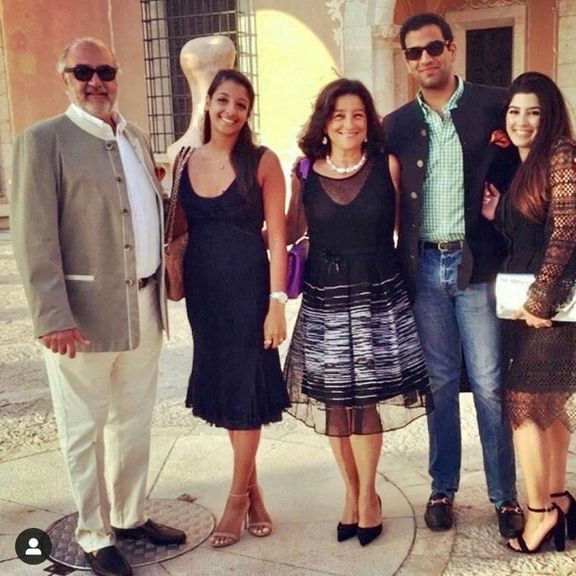
At the centre of the negotiations that forged this deal between the superpower which Iran brands the "Great Satan”, and the Islamic Republic which Washington calls a state sponsor of terrorism is the tiny but hugely rich state of Qatar.
Doha hosted at least eight rounds of talks involving Iranian and US negotiators sitting in separate hotels speaking via shuttle diplomacy, a source briefed on the discussions said, with the earlier sessions focused mainly on the thorny nuclear issue and the later ones on the prisoner releases.
Doha will implement a financial arrangement under which it will pay banking fees and monitor how Iran spends the unfrozen cash to ensure no money is spent on items under US sanctions, and the prisoners will transit Qatar when they are swapped, according to three of the sources.
"Iran initially wanted direct access to the funds but in the end agreed to having access via Qatar," said a senior diplomat. "Iran will purchase food and medicine and Qatar will pay directly."
Reuters pieced together this account of previously unreported details about the extent of Qatari mediation of the secret talks, how the deal unfolded and the expediency that motivated both parties to clinch the prisoner swap deal. Reuters interviewed four Iranian officials, two US sources, a senior Western diplomat, a Persian Gulf government adviser and the person familiar with the negotiations.
All of the sources requested anonymity because of the sensitivity of a deal which hasn’t been fully implemented.
A State Department spokesperson said the US was not ready to announce the exact timing of the prisoner release. The Department also declined to discuss the details of what the spokesperson termed "an ongoing and highly sensitive negotiation.”
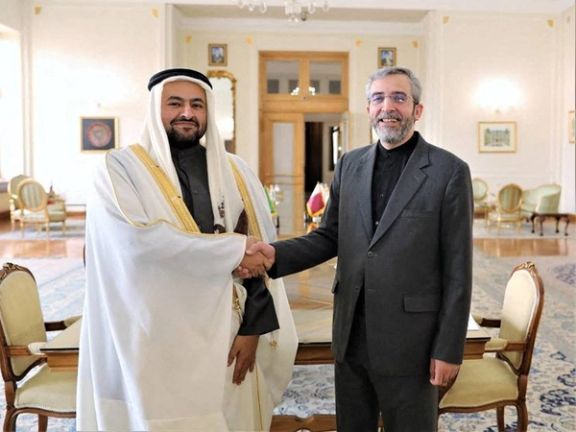
‘YOU CAN BUILD TRUST’
The US administration has not commented on the timing of the funds transfer. However, on Sept 5, South Korean foreign minister Park Jin said efforts were under way to transfer Iran's funds.
"The US-Iran relationship is not one characterized by trust. We judge Iran by its actions, nothing else," the State Department spokesperson added.
Washington consented to the movement of Iranian funds from South Korea to restricted accounts held by financial institutions in Qatar, but no money is going to Iran directly, the spokesperson added.
Qatar’s Ministry of Foreign Affairs did not respond to Reuters' request for comment on the details of negotiations, Qatar’s role in the talks or the terms of the final agreement.
Iran’s foreign ministry and its UN mission did not respond to detailed questions regarding this story.
The sources' account of the negotiation shows how the deal sidestepped the main US-Iran dispute over Iran's nuclear aims, culminating in a rare moment of cooperation between the long-time adversaries, at odds on a host of issues from Iran's nuclear program to the US military presence in the Persian Gulf.
Ties between the US and Iran have been at boiling point since Donald Trump quit a nuclear deal with Iran as US president in 2018. Reaching another nuclear deal has gained little traction since then, as President Joe Biden prepares for the 2024 US election.
The State Department spokesperson also said there had been no change in Washington's overall approach to Iran, "which continues to be focused on deterrence, pressure and diplomacy."
Once the funds are transferred, they will be held in restricted accounts in Qatar, and the US will have oversight as to how and when these funds are used, the State Department spokesperson added.
The potential transfer has drawn Republican criticism that Biden, a Democrat, is in effect paying ransom for US citizens. But Blinken told reporters on Aug 10 the deal does not mean that Iran would be getting any sanctions relief, explaining that Washington would continue to push back "resolutely against Iran’s destabilising activities in the region".
The Qatari-led mediation gained momentum in June 2023, said the source briefed on the discussions, adding at least eight rounds of talks were held since March 2022, with earlier rounds devoted mainly to the nuclear issue and later ones to prisoners.
"They all realised that nuclear (negotiation) is a dead end and shifted focus to prisoners. Prisoners is more simple. It’s easy to get and you can build trust," he said. "This is when things got serious again."
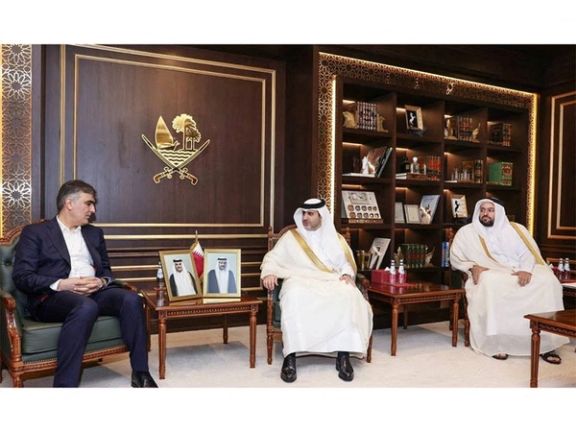
PRISONERS EXPECTED TO TRANSIT QATAR
The Iranian, diplomatic and regional sources said that once the money reaches Qatar from South Korea via Switzerland, Qatari officials will instruct Tehran and Washington to proceed with the releases under the terms of a document signed by both sides and Qatar in late July or early August. Reuters has not seen the document.
The transfer to banks in Qatar is expected to conclude as early as next week if all goes to plan, the source briefed on the talks said. Reuters was unable to identify the banks involved.
“American prisoners will fly to Qatar from Tehran and Iranian prisoners will fly from the US to Qatar, and then be transferred to Iran,” the source briefed on the talks told Reuters.
According to two Iranian insiders, the source briefed on the negotiations and the senior Western diplomat, the talks' most complex part was arranging a mechanism to ensure transparency in the money transfer and respect for US sanctions. The $6 billion in Iranian assets – the proceeds of oil sales – were frozen under sweeping US oil and financial sanctions against Iran. Then president Trump in 2018 reimposed the sanctions when he pulled Washington out of a deal under which Iran had restricted its nuclear program.
Issues discussed included how to ensure Iran only spent the money on humanitarian goods and securing guarantees from Qatar on its monitoring of the process.
"To salvage the negotiations from collapse, Qatar pledged to cover the banking fees for the funds' transfer from Seoul to Switzerland, and subsequently to Qatari banks, while also taking on the responsibility of expense oversight," an Iranian insider briefed about the talks told Reuters.
The central bank governors of Iran and Qatar met in Doha on June 14 to discuss the funds transfer, a second Iranian insider and the source briefed on the talks said.
The Central Bank of Iran and the Qatar central bank declined to comment .
The talks were led by US Special Envoy for Iran Robert Malley -- now on unpaid leave because his security clearance is under review -- and by US Deputy Special Envoy Abram Paley and Iran's chief nuclear negotiator, Ali Bagheri Kani, said one Iranian official, two sources briefed on the negotiations and the Western diplomat.
Mehdi Safari, Iran’s deputy foreign minister for economic affairs, joined the Iranian delegation at two meetings in Qatar for talks on the funds transfer, one senior Iranian diplomat told Reuters. Qatari Minister of State at the Foreign Ministry Mohammed Al-Khulaifi was the go-between mediator.
Malley declined to comment. Paley, Kani and Al Khulaifi could not be reached directly for comment.
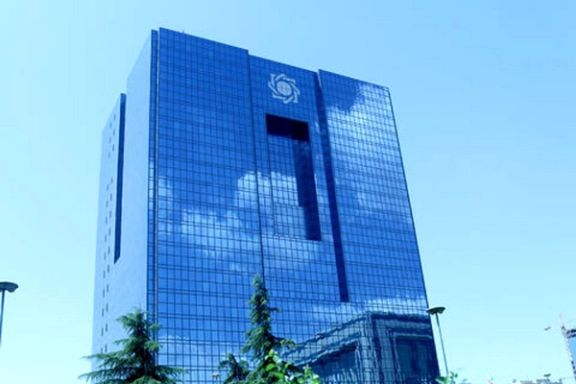
The Central Bank of Iran intends to offer regional currencies to citizens traveling to neighboring countries, instead of selling them US dollars.
Iran this year provided Iraqi dinars, instead of US dollars, to hundreds of thousands of pilgrims who visited Iraq at the end of August and early September for Shiite religious ceremonies. Now it intends to use the same tactic for providing foreign currency to travelers visiting regional countries.
The Iraqi dinars became available to the cash-strapped Iranian government when the United States in June allowed Baghdad to repay the equivalent of $2.7 billion from accrued energy import debts. It was reported at the time that part of funds will be for Iran to spend on Muslim pilgrimages to Saudi Arabia and Iraq. Apparently, a portion of the released funds were in Iraqi dinars.
Iran is critically short of hard currencies despite much higher oil exports in recent months in the face of US sanctions.
The chairman of the central bank Mohammad-Reza Farzin told local media on Saturday that Iran intends to use the Turkish lira or the UAE dirham for regular tourism based on the model it employed with the recent pilgrimage to Iraq.
The US dollar and other top currencies are near all-time highs in Tehran’s free market, while the government could sell regional currencies to tourists, possibly at more advantageous rates, converting regional currencies it earns from trade into Iranian rials for government expenses.
Farzin added that the central bank is in the process of expert analysis and planning for the move.
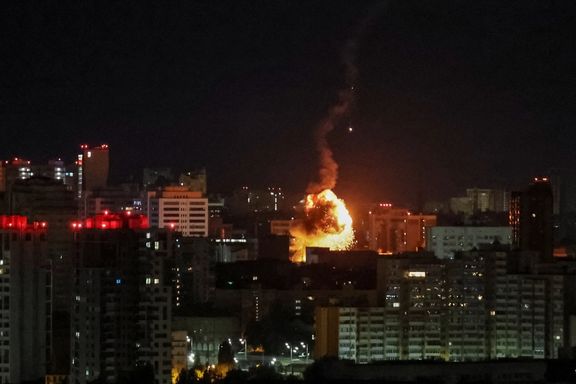
Russia used 32 Iranian-made kamikaze drones to attack Ukraine’s capital Kyiv early on Sunday, in one of the biggest such air raids in recent months.
Blasts were ringing out across the Ukrainian capital and its region for almost two hours and drone debris falling on several of the city's central districts, Ukrainian officials said.
Ukraine's Land Forces said that the country's air defence systems destroyed 25 out of 32 Russia-launched Iran-made Shahed drones, most of which targeted Kyiv and the Kyiv region.
Reuters witnesses heard at least five blasts across Kyiv, and Ukrainian media footage showed a number of cars damaged.
"Drones came onto the capital in groups and from different directions," Serhiy Popko, head of Kyiv's city military administration, said on the Telegram messaging app.
Iran has supplied hundreds of the killer drones to Russia since mid-2022, while denying any role in the war. Western allies have imposed sanctions on many individuals and entities involved in the supply of the weapon but have not increased overall sanctions on Iran. In a highly controversial move, the Biden administration in August released $6 billion of Iran’s frozen funds in South Korea in a hostage deal.
Kyiv Mayor Vitali Klitschko said that one person was injured in the historic Podil neighborhood, and a fire broke out near one of the city's parks.
Debris from downed drones fell on the Darnytskyi, Solomianskyi, Shevchenkivskyi, Sviatoshynskyi and Podil districts, Klitschko and the city's military administration said.
In the Shevchenkivskyi district, drone debris sparked a fire in an apartment, which was quickly extinguished. There were no immediate reports of injuries, Popko said on the Telegram messaging app.
With reporting by Reuters
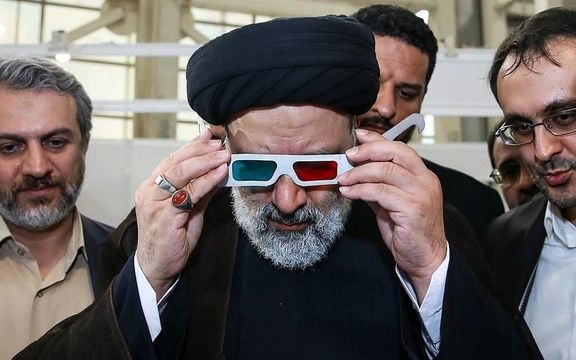
Some political observers in Iran define President Ebrahim Raisi's government as a copycat, based on remnants of former President Mahmoud Ahmadinejad's populist narrative.
However, as noted in a Khabar Online report, also carried by a few other Iranian websites, the Raisi administration at times appears to be a blend of Ahmadinejad's ideas with his reformist predecessor Mohammad Khatami's slogans. The part of the Raisi administration's discourse which is reminiscent of President Khatami's rhetoric is Raisi's frequent allusions to the ideas of Justice and Republic, Khabar Online wrote.
Apart from his political and economic failures, the report maintained that Raisi's attempt to create a new or copied discourse has also failed, though not entirely due to his actions. The idea of a Republic in Iran has been torpedoed by the government's intervention in elections and its undermining of the role of elected bodies such as the parliament and the Assembly of Experts that was supposed to control the Supreme Leader's behavior.
Nonetheless, the Strategic Studies Center, a research body that operates under the President’s Office published a magazine at the end of the first year of Raisi's presidency to outline his discourse. However, the publication did not grab any attention, as all discussions at the time and later were focused on the government's inefficiency and its failure to sort out domestic and foreign problems.
The publication, according to Khabar Online, aimed to emulate what political scientists and economists had compiled to define President Khatami's discourse. However, some of Iranian academics said openly that real progress under President Raisi was way below the level of the discourse. Nonetheless, what Raisi's men put together also used Ahmadinejad's populist rhetoric.
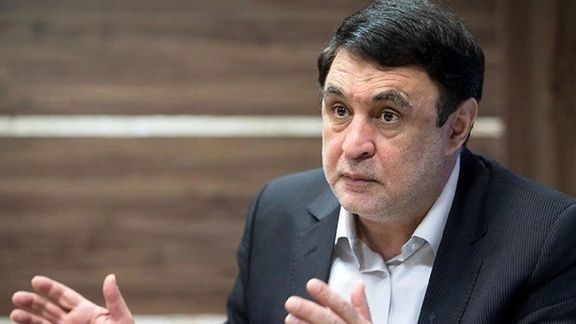
Conservative analyst Nasser Imani pointed out that what Raisi's aides assembled as his discourse does not align with his behavior and his government's performance. Imani pointed out that the government's overall performance, marked by the infiltration of fake revolutionaries in the government. Imani even pointed out the "paradoxical conflict" between Raisi's performance and the ideas of justice and republican principles. This, he said makes Raisi's statements hard to believe.
Meanwhile, in an interview with Rouydad24, Morteza Ezzati, an academic at the Teachers Training University in Tehran remarked that "The Raisi administration is incapable of detecting the country's problems and making decisions to solve them." Referring to the ill-defined ideals and discourse of the administration, Ezzati added, "No ideal is significant enough for which the government could put pressure on the people."
Ezzati further suggested that infiltrators who do not wish for the country's current situation to improve exacerbate the situation to prevent an agreement between Iran and the West that could help end the country’s economic crisis. He views the presence of infiltrators in the government as the most likely explanation for the current political impasse and economic crisis.
Explaining the impact of ultraconservatives on Iranian society and the country's international relations, Ezzati gave the example of advocates of BRICS as a substitute for a nuclear deal with West. He pointed out, "BRICS is an agreement between governments, but it cannot reduce the impact of sanctions because sanctions are not imposed by the private sector. With or without BRICS, any entity in China trying to engage in further trade with Iran will inevitably come under US sanctions."
He reiterated, "The obstacles to trade will be eliminated only with the coming to power of a government in Iran that attaches a high priority to coming to terms with the international order." On the other hand, he argued that "current decision-makers in Iran cannot make decisions that can overcome the economic impasse by ending the sanctions."
Ezzati concluded by stating, "Raisi's government is not capable of advancing a dialogue to secure Iran's interests because it cannot make decisions. However, under excessive pressure, it may take negotiations seriously."






